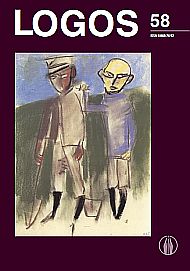Mošé Maimonidas: Etika - Sielos Gydytoja
Moses Maimonides: Ethics - Mind’s Healer
Author(s): Dalia Marija StančienėSubject(s): Ethics / Practical Philosophy, Jewish Thought and Philosophy, Philosophy of Middle Ages, Philosophy of Religion
Published by: Visuomeninė organizacija »LOGOS«
Keywords: Moses Maimonides; Shemonah Peraqim; Aristotle; Al Farabi; philosophical ethics;
Summary/Abstract: The article considers the ethical treatise Shemonah Peraqim (The Eight Chapters) by Medieval Jewish thinker, Moses Maimonides (1135-1204), who claims that human nature is prone to evil deeds and therefore it needs the assistance of mind treatment. The Shemonah Peraqim is written as an introduction to the Avot (The Fathers), the part of Mishna, in which ethical questions are treated against the background of the Jewish faith. In the Shemonah Peraqim, Maimonides combines the moral teaching of the Talmud and the Mishna with ethics of Aristotle and Al Farabi. Maimonides treats the first seven books of Aristotle’s Nicomachean Ethics in the first six chapters of his writing; analyzes human mind and its ability to revolt; discusses its maladies and their treatment; describes the differences between virtuous and temperate man. In the sixth chapter, Maimonides displays the contention between philosophers and rabbis concerning the rules of virtuous and religious life. In the last two chapters, he analyzes the Midrash literature about human nature and its relatedness to God.
Journal: LOGOS - A Journal of Religion, Philosophy, Comparative Cultural Studies and Art
- Issue Year: 2009
- Issue No: 58
- Page Range: 103-112
- Page Count: 10
- Language: Lithuanian

